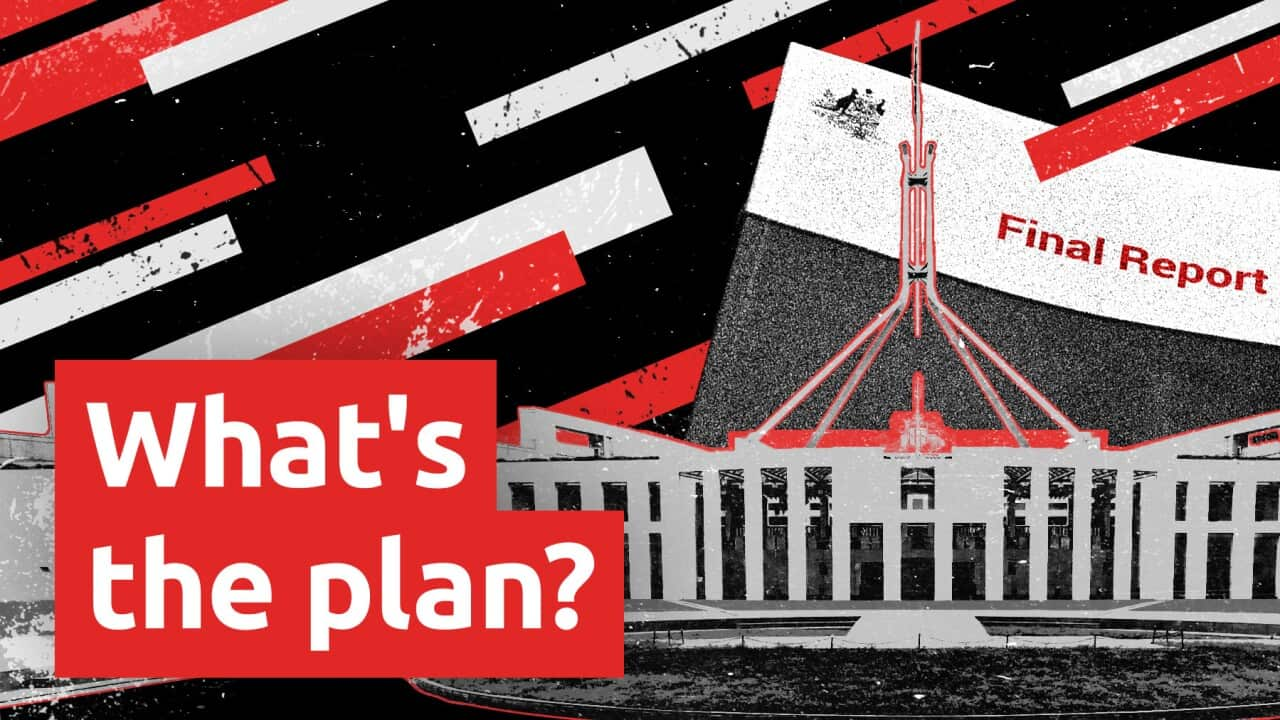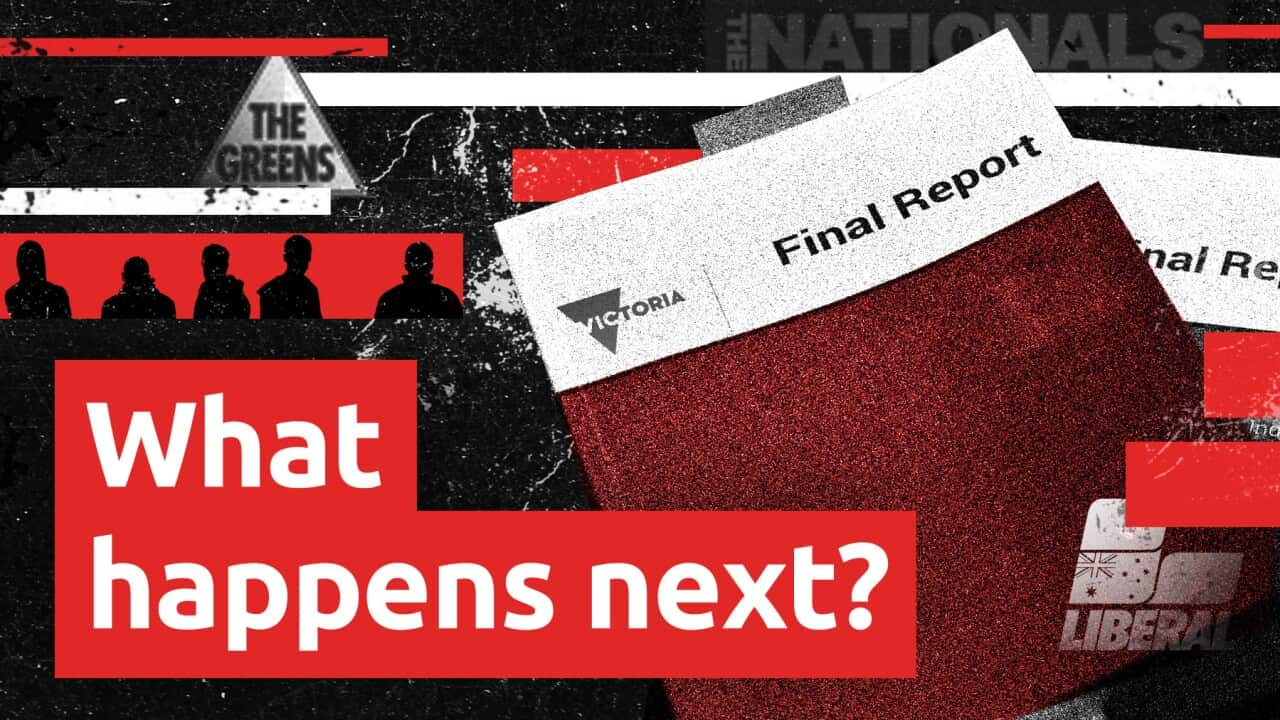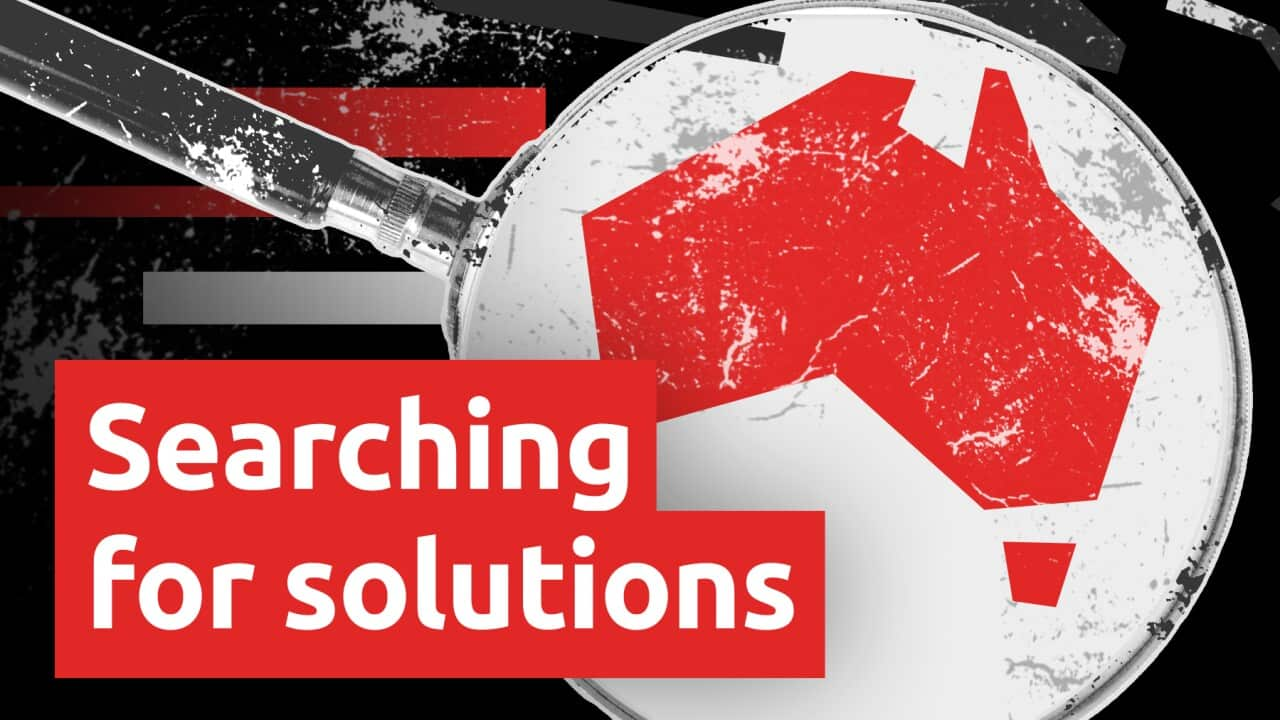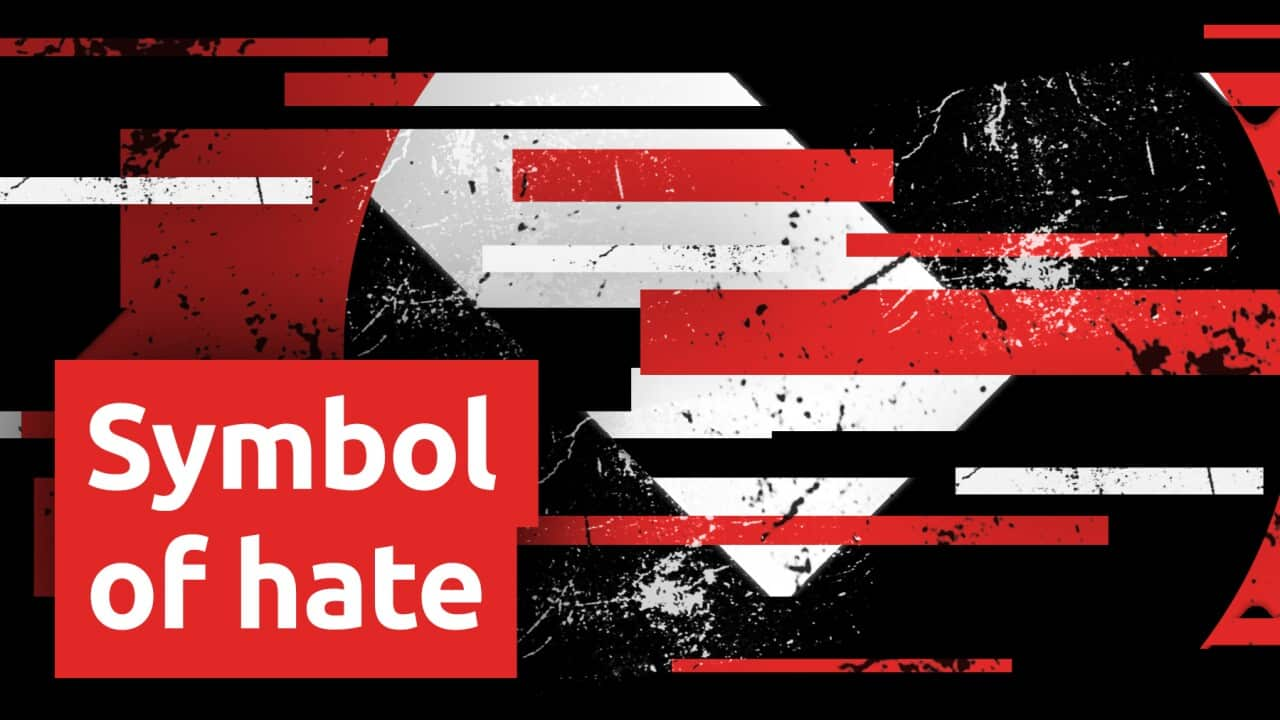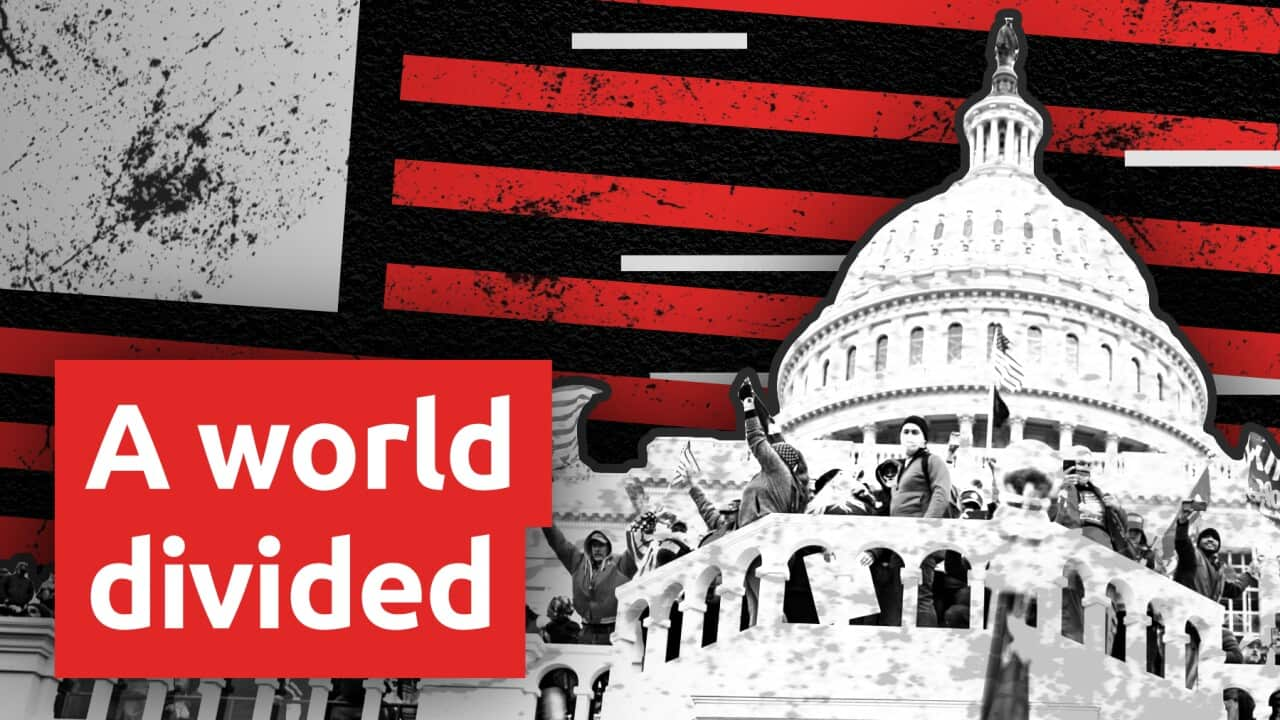TRANSCRIPT
Divisive debate, polarising discourse and concerning campaigns against targeted minority groups are all arguably contributing to hate speech, heated rallies on the streets and public displays of anger.
The Australian Federal Police (AFP) has raised fears that ideologically-motivated violent extremism is spreading across the country.
After an inquiry into extremist movements and radicalism lapsed in 2022, a fresh investigation into right-wing extremist movements began in late 2023.
In the Senate committee’s latest inquiry, the AFP categorised several groups motivated by white supremacy, nazi ideology or ethno-nationalism.
Newsreader grab: "The first person in Victoria found guilty of performing the Nazi salute in public has been released on bail, after being handed a one month prison term. The accused has appealed the sentence saying he believes the punishment is an attack on freedom of speech."
The AFP reported last year five people were charged in alleged extremist cases and one individual held an ideology that was unclear.
One of the big challenges police say that they face is shifting leaders among groups, and changing memberships.
Alexander Ritzman is from the counter-extremism project based in Berlin.
He argues that white supremacist clubs are the fastest-growing groups of extremists worldwide.
“Active clubs pretend to have deradicalised and to only focus on sports and brotherhood. They are often founded by members of established, open extreme right neo-nazi groups, to attract members from mainstream society.”
Mr Ritzman told the Australian inquiry about the national socialist network.
SBS News has obtained a flier from the National Socialist network vowing to fight against the lies and violence of the anti-white system.
It’s signed off ‘in blood and honour’.
Despite Victoria’s laws banning gestures and Nazi symbols, there are ongoing concerns about public displays of hate in the state.
Police have just launched an investigation into a man alleging performing the Nazi salute at Flemington racecourse on November 7th.
Australian Security Intelligence Organisation (ASIO) head Mike Burgess told the hearing in July this year there can be a combination of multiple ideologies.
“ASIO does not investigate people solely because of their political views nor their religion, and terms like left and right no longer capture the spectrum of beliefs we are seeing and can therefore obscure the main motivation behind the threat.”
When independent Senator Lidia Thorpe asked the government what it was doing to counter hateful views online, a written response later stated:
“Despite general improvement in how many online platforms deal with violent and extremist content, this content continues to proliferate, which increases the risk of online radicalisation. Automated algorithms incentivise the amplification of extremist content. Some platforms rely on such content to generate user engagement, and some have poor moderation practices and policies. // The Government is committed to pursuing legislative amendments to create new criminal offences and strengthen existing laws relating to hate speech, including online.”
When it comes to social media apps and the companies behind them, there are concerns about how promptly harmful content is removed.
But Dr Kristy Campion, from Charles Sturt University, explains it’s a complex issue to resolve online.
“Look I don’t think it’s unusual to note that all sorts of extremists are using the internet, we can’t expect extremists to not use the resources that are available to most Australians - and that includes online media.”
Dr Campion hopes the government expands its prescription of what is a dangerous group that poses a threat to the public.
“Now in Australia we are simply not seeing that expansion of listing of terrorist organisations, and that’s not just a formality, not just a message you’re sending but actually it’s inhibiting the way you can think about countering certain threats in our community such as the threat against our young people, young Australians. We know from industry reports, but also from the literature and from media reporting, that the extreme right are targeting young people.”
But with more public rallies comes more visibility in the community when individuals step out to protest.
And with the constant capturing of protests on mobile phones, live streams, identification can become easier for authorities.
But more broadcasts, reporting and user posts of harmful content can also further expose dangerous messages.
The inquiry also heard of a need for platforms to moderate content and make ideologies less appealing, and a need to counter these with criminal penalties.
After two public hearings this year, the inquiry is preparing its final report, due out in December.
Victoria Police is asking citizens who notice the Nazi salute performed in public to contact Crime Stoppers on 1800 333 000.
